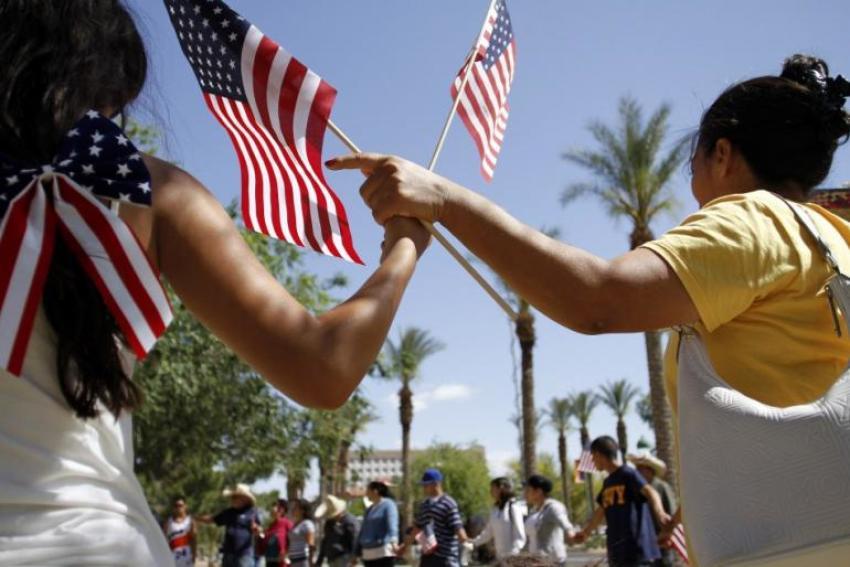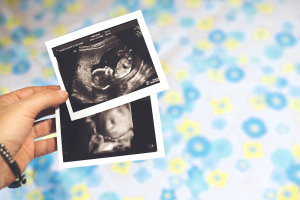Hispanic Evangelicals much less likely to vote for candidates who support late-term abortions: poll

Hispanic Evangelicals are much less likely to vote for a candidate who supports late-term abortion, according to a new poll released ahead of the midterm elections.
In conjunction with the National Hispanic Christian Leadership Conference, My Faith Votes released the results of a national survey of 1,002 Evangelical Christians and 503 Hispanic Evangelical registered voters Thursday. The poll, commissioned by Heart & Mind Strategies from Aug. 23 to Sept. 6, asked respondents for their thoughts on abortion policy and other political issues facing the United States.
The survey presented participants with six statements reflecting a position on the legality of abortion and asked them to identify which statement most closely aligned with their beliefs on the hot-button issue. Just 15% of Evangelical voters said they believe “abortion should be available to a woman any time she wants during her entire pregnancy.” That number slips to 12% among Hispanic Evangelical voters.
Some 5% of Hispanic Evangelicals believe that abortion should only be legal during the first six months of a pregnancy and 18% want to see abortions limited to the first trimester. The remaining 66% expressed support for near-total bans on abortion.
Thirty-eight percent of Hispanic Evangelical voters think abortion should only be allowed in cases of rape, incest or to save the life of the mother, while 13% support legal abortion only in cases where the mother is facing a medical emergency. Fifteen percent indicated support for a total ban on abortion.
Among the sample of Evangelical voters, 14% believe that abortion should be illegal in all cases; 16% think abortion should only be legal to save the life of the mother; 37% support abortion bans except in cases of rape and incest or to save the life of the mother; 13% want to limit legal abortion to the first three months of pregnancy; 4% support allowing abortions for the first six months of pregnancy, and 15% told pollsters that abortion should remain legal throughout pregnancy.
The survey also asked respondents whether they would be more likely or less likely to vote for a congressional candidate who supports third-trimester abortions. Only 8% of Hispanic Evangelical voters characterized themselves as “much more likely” to vote for a candidate who supports third-trimester abortions, while an additional 9% identified themselves as “somewhat more likely” to do so.
While a substantial portion of that demographic group (28%) maintained that support for third-trimester abortion would make them “neither more nor less likely” to cast their ballot for a particular candidate, a plurality of Hispanic Evangelical voters (39%) cited support for late-term abortions as a factor that would make them “much less likely” to vote for a candidate. The remaining 16% were “somewhat less likely” to support a candidate in favor of third-trimester abortions.
Among Evangelical voters as a whole, a majority (52%) are less likely to vote for candidates who support late-term abortion, followed by 22% who are “neither more nor less likely” to do so, 12% who are “somewhat less likely” to support such candidates, 7% who classified themselves as “much more likely” to embrace such candidates, and 6% who are “somewhat more likely” to.
“The results of the poll are clear: a Democratic Party which supports late-term abortion — at any time under any circumstance — is a Democratic Party choosing white, elite liberals over Latinos,” said the Rev. Samuel Rodriguez, NHCLC President. “It is the equivalent of putting a sign on the party’s door that says ‘no Latinos allowed.’”
In a previous interview with The Christian Post, Rodriguez predicted that the Democrats’ position on abortion would cause Latinos to shift away from the party. To some extent, the shift Rodriguez forecasted has already played out in recent elections.
Less than one month after the interview, Republican Mayra Flores won a special election in Texas’ heavily Hispanic 34th Congressional District. Data compiled by the progressive blog The Daily Kos shows that in the 2016 presidential election, the South Texas-based district supported Democrat Hillary Clinton by nearly 22 points. By the 2020 presidential election, the Democratic margin of victory decreased to just 4 points.
In the 2020 presidential election, exit polling from CNN found that Latinos supported Democrat Joe Biden over Republican Donald Trump by 33 points. The most recent generic ballot poll conducted by the Economist/YouGov, which asks voters which party they would like to have control of Congress, finds Hispanics favoring the Democratic candidate over the Republican candidate by 17 points.
Polls conducted earlier in the year and listed by Rodriguez as evidence that “Latinos are abandoning the Democratic Party in droves” showed Hispanics favoring Republican candidates by 13 points and 9 points.
While the views of Hispanic Evangelical voters and Evangelical voters as a whole on the issue of abortion are nearly identical, Hispanic Evangelicals are less likely than their non-Hispanic counterparts to disapprove of President Biden’s job performance on issues other than abortion.
Specifically, while 75% of Evangelical voters disapprove of Biden’s handling of “the unauthorized entry of non-U.S. citizens at the Southern border with Mexico," disapproval of the administration’s handling of the issue dropped to 62% among Hispanic Evangelicals.
Majorities of Evangelical voters (72%) and Hispanic Evangelical voters (66%) disapproved of Biden’s handling of the economy. The survey measured disapproval of the president’s handling of foreign relations with China at 58% among Hispanic Evangelical voters and 70% among Evangelical Voters. A similar gap exists in the approval ratings of Biden’s handling of foreign policy, in general, between Hispanic Evangelicals (56%) and Evangelical voters (67%).
Similarly, a higher share of Evangelical voters (71%) disapprove of a “catch and release” policy for illegal immigrants than Hispanic Evangelical voters (56%). Seventy-one percent of Evangelical voters disapprove of Biden’s handling of foreign relations with Iran, with a slightly smaller share of Hispanic Evangelical voters (64%) also expressing disapproval. Overall, majorities of Hispanic Evangelical voters (57%) and Evangelical voters (66%) expressed disapproval of the president’s job performance.
The survey comes after abortion has emerged as a major issue in the upcoming 2022 midterm elections following the U.S. Supreme Court’s decision in Dobbs v. Jackson Women’s Health Organization finding that the U.S. Constitution did not contain a right to abortion. While polling shows the American public as a whole supporting abortion at some point during a pregnancy, most surveys also illustrate opposition to late-term abortion.
Congressional Democrats have repeatedly sought to pass the Women’s Health Protection Act, which would codify a right to abortion into federal law and limit the ability of states to enact abortion restrictions. Critics of the legislation have slammed it as a method of enshrining late-term abortion into federal law.
Ryan Foley is a reporter for The Christian Post. He can be reached at: ryan.foley@christianpost.com



























